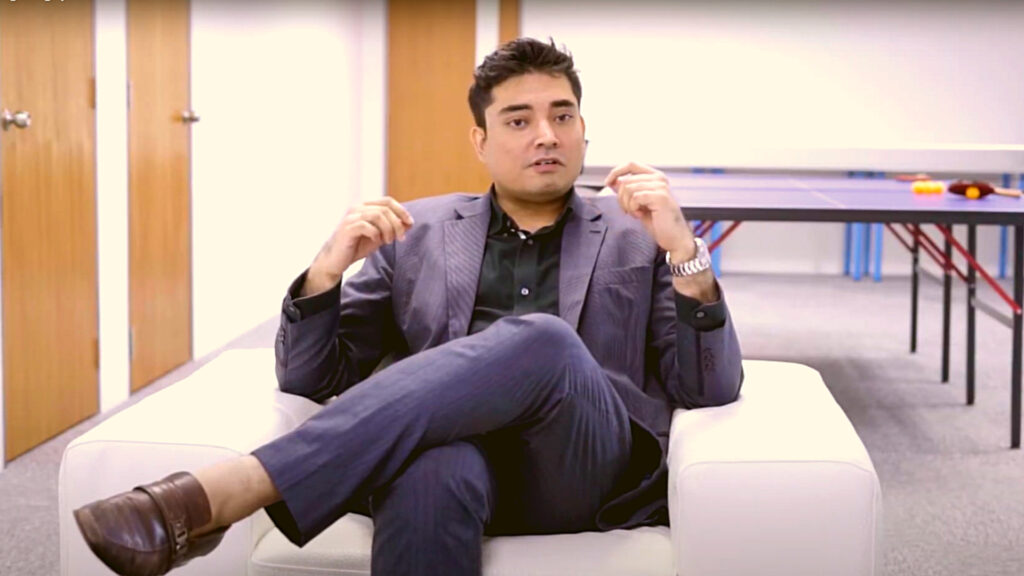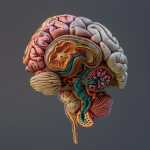Welcome to the world of memory mastery with Sancy Suraj, a renowned memory athlete and trainer who has achieved remarkable feats in memorization. As the CEO of Knowles Training Institute, The Umonics Method, and Pinnacle Minds, Sancy Suraj has trained over 10,000 people worldwide and holds multiple records, including a Guinness World Record and six Singapore Book of Records, for his exceptional memory skills. In this article, we will explore Sancy Suraj’s Memory Masterclass, a program designed to unlock the potential of the human brain and improve memory performance. Through a series of six questions and in-depth answers, we will delve into the key techniques, scientific insights, practical applications, and customization of Sancy Suraj’s memory training programs, as well as the expected results for participants.

What are some of the key techniques or strategies you teach in your memory masterclass?
In my memory masterclass, I teach a variety of key techniques and strategies that are designed to help individuals improve their memory and unlock their brain’s potential. One of the key techniques is the Method of Loci, also known as the Memory Palace technique. This technique involves associating information with familiar locations or places in one’s mind. For example, participants learn to mentally place items they need to remember, such as a list of words or numbers, in specific rooms or locations within a familiar place, such as their home or office. This creates a visual and spatial association that aids in recall.
Another important technique I teach is the use of visual imagery. Participants learn how to create vivid mental images that are closely related to the information they want to remember. These mental images serve as hooks that make the information more memorable and easier to retrieve. Additionally, I emphasize the use of chunking, which involves breaking down large amounts of information into smaller, more manageable chunks. This makes the information easier to process and remember.
Elaborative encoding is another strategy I teach in my memory masterclass. This technique involves actively engaging with the information to be remembered by making meaningful connections to prior knowledge or personal experiences. This deepens the encoding of the information in the brain, making it more likely to be retained in long-term memory.
By mastering these and other memory techniques, participants in my memory masterclass learn how to effectively encode, store, and retrieve information from their memory. These techniques are practical and applicable to various aspects of life, such as studying, work-related tasks, remembering names and faces, and everyday tasks that require memory skills. The goal is to empower individuals with practical strategies that they can apply in their daily lives to improve their memory and unlock their brain’s potential.
How do these techniques work in unlocking the potential of the human brain?
The techniques I teach in my memory masterclass work by leveraging the brain’s natural cognitive processes and enhancing its capacity for pattern recognition, association, and visualization. For instance, the Method of Loci exploits the brain’s spatial memory and visual processing abilities by creating a mental map of familiar locations, which serves as a framework for organizing and recalling information. The use of visual imagery taps into the brain’s ability to remember pictures more easily than abstract concepts or words, making the information more memorable and accessible.
Moreover, chunking, or breaking down information into smaller, more manageable chunks, aligns with the brain’s limited working memory capacity, allowing for better encoding and retention of the information. Elaborative encoding, which involves connecting new information with existing knowledge or personal experiences, stimulates the brain’s associative networks and deepens the encoding of the information in long-term memory.
These techniques not only improve memory performance but also promote cognitive flexibility, creativity, and critical thinking skills. By training the brain to be more efficient and effective in processing and retrieving information, these techniques can enhance overall cognitive functioning and unlock the full potential of the human brain.
Can you share any scientific insights or research that support the effectiveness of memory training?
In addition to the empirical evidence from my own experience as a memory athlete and trainer, there is ample scientific research that supports the effectiveness of memory training. Numerous studies have demonstrated the positive impact of mnemonic techniques, such as the Method of Loci, on improving memory performance across various age groups and populations. Research has also shown that visual imagery, chunking, and elaborative encoding techniques can enhance memory consolidation, retrieval, and overall cognitive function.
For example, a study published in the journal “Nature” found that using the Method of Loci improved the memory performance of older adults, even surpassing the performance of younger adults. Another study published in the “Journal of Experimental Psychology: Learning, Memory, and Cognition” showed that visual imagery can significantly improve memory performance in tasks such as word recall and face recognition. Additionally, research has shown that chunking information into smaller, more manageable chunks can improve memory performance in tasks such as remembering long lists of numbers or words.
Neuroscientific studies using brain imaging techniques have revealed that memory training can lead to changes in the brain’s structure and function, including increased activation in regions associated with memory and attention. For example, studies have shown that the use of visual imagery in memory tasks can activate the hippocampus, a crucial brain region for memory consolidation. These findings provide scientific evidence for the efficacy of memory training techniques in unlocking the potential of the human brain.
Overall, the scientific research supports the effectiveness of memory training techniques in improving memory performance and cognitive function. These findings highlight the value of incorporating mnemonic techniques, such as the Method of Loci, visual imagery, chunking, and elaborative encoding, into memory training programs to unlock the full potential of the human brain and enhance memory performance in various contexts of everyday life.
“Science confirms what memory athletes have known for centuries – memory training techniques are backed by empirical evidence. From the Method of Loci to visual imagery, research supports the effectiveness of memory training in unlocking the true power of our minds. The science is clear: memory training is a proven path to improved memory performance and cognitive function.”
What are some practical applications of memory training in everyday life?
As a memory athlete and trainer, I have seen firsthand the practical applications of memory training in everyday life. Improved memory performance can have a profound impact on various aspects of our daily routines. For example, in the workplace, better memory can help me remember important details, deadlines, and instructions, leading to increased efficiency and accuracy in my tasks. It enables me to recall important information during meetings, presentations, and discussions, allowing me to contribute effectively to my work and excel in my responsibilities.
In my personal life, memory training has helped me manage my schedules, appointments, and commitments more effectively. I can easily recall important dates, events, and responsibilities, ensuring that I am organized and able to meet my obligations promptly. Memory training has also improved my ability to remember names, faces, and other details about people, which has enhanced my communication skills and helped me build better relationships with others.
Furthermore, memory training has been beneficial in my pursuit of lifelong learning. As a memory athlete and trainer, I constantly strive to acquire new knowledge and skills. Memory training has enabled me to better encode, retain, and retrieve information, making my learning process more efficient and effective. It has helped me in areas such as language acquisition, musical instrument playing, and other skills that require memorization and recall.
In addition, memory training has also been valuable for maintaining cognitive function and overall health, particularly as I age. It has helped me manage my medication regimens, remember important health-related information, and maintain cognitive sharpness, reducing the risk of cognitive decline and improving my overall well-being.
As a memory trainer, I understand the importance of customizing memory training programs for different individuals or groups. I take into consideration their unique needs, goals, and learning styles, and adapt the training program accordingly. This may involve adjusting the difficulty level of memory tasks, providing additional support or resources, and incorporating relevant examples or contexts that resonate with the participants’ interests or experiences.
In conclusion, memory training has practical applications in various aspects of everyday life, including work, personal organization, communication, lifelong learning, and health management. Through customized memory training programs, individuals can unlock the full potential of their brains, leading to improved memory performance and enhanced overall well-being.
How do you customize your memory training programs for different individuals or groups?
As a memory trainer, I understand that each individual has different strengths, weaknesses, and learning styles when it comes to memory. Therefore, I customize my memory training programs to cater to the specific needs of different individuals or groups.
One key aspect of customization is assessing the baseline memory performance of participants. I use various memory tests and assessments to understand their current memory abilities and identify areas that need improvement. This helps me design a training program that addresses their unique memory challenges and builds on their existing strengths.
Another important consideration is the individual’s learning style. Some people may be visual learners, while others may prefer auditory or kinesthetic learning. I adapt my training techniques and materials accordingly to ensure that participants can learn and practice memory techniques in a way that resonates with their preferred learning style. This allows them to better understand and apply the memory strategies in their everyday life.
Additionally, I take into account the specific goals and interests of the participants. For example, if someone is looking to improve their memory for professional purposes, such as sales or public speaking, I may incorporate memory techniques that are specifically relevant to those areas. If someone is interested in improving memory for academic pursuits, I may focus on techniques that aid in retaining and recalling information from textbooks or lectures.
Moreover, I also consider the pace of the training program. Some individuals may prefer a more intensive training schedule, while others may prefer a more gradual approach. I tailor the training program accordingly, taking into account the time and effort participants are willing and able to invest in their memory training.
By customizing my memory training programs to meet the specific needs, goals, and learning styles of individuals or groups, I can ensure that they receive the most effective and relevant training to unlock their brain’s potential and achieve optimal memory performance.
“Personalization is the key to unlocking the full potential of memory training. By tailoring programs to individual strengths, weaknesses, and learning styles, we can empower individuals to unlock their memory prowess and achieve remarkable results. Customization is the cornerstone of effective memory training, paving the way for optimal memory performance and success.”
Sancy Suraj’s memory masterclass is built on key techniques and strategies that have been honed through years of experience and expertise in the field of memory training. One of the core techniques taught in the masterclass is the use of mnemonic devices, such as the Memory Palace or Method of Loci, which leverages the brain’s natural ability to remember spatial locations to encode and retrieve information. Other techniques include visualization, association, and chunking, which help participants effectively encode and retain information in their long-term memory.
These techniques work by tapping into the brain’s innate ability to process and organize information in a more structured and meaningful way. By leveraging various cognitive processes, such as visual and spatial memory, semantic encoding, and retrieval cues, participants can enhance their memory performance and unlock their brain’s potential to remember and recall information with greater ease and accuracy.
Furthermore, Sancy Suraj’s memory training programs are backed by scientific insights and research that support their effectiveness. Studies have shown that regular practice of memory techniques can lead to improved cognitive function, increased neuroplasticity, and enhanced memory performance in various domains of life. Neuroscientific research has also revealed the plasticity of the brain, indicating that memory can be trained and improved with targeted techniques and practice, just like any other cognitive skill.
Practical applications of memory training in everyday life are vast and diverse. From academic pursuits to professional endeavors, memory plays a crucial role in our daily activities. Improved memory can lead to better academic performance, increased productivity at work, improved communication skills, and enhanced personal relationships. Memory training can also have practical applications in daily tasks such as remembering important dates, appointments, and to-do lists, as well as in hobbies and recreational activities that require memorization, such as learning a musical instrument or mastering a new language.
Customization is a key aspect of Sancy Suraj’s memory training programs. He understands that each individual is unique, with different learning styles, strengths, and weaknesses. Therefore, he customizes his training programs to cater to the specific needs, goals, and learning styles of participants. By assessing their baseline memory performance, understanding their learning style preferences, and considering their individual goals, Sancy Suraj tailors the training program to provide the most effective and relevant instruction to unlock their brain’s potential and optimize their memory performance.
What results can participants expect to achieve after completing your memory masterclass?

After completing my memory masterclass, participants can expect to achieve significant improvements in their memory performance. The techniques and strategies taught in the masterclass are designed to enhance various aspects of memory, including encoding, retention, and retrieval of information. With regular practice and application of these techniques in everyday life, participants can experience tangible results.
Participants can expect to see improvements in their ability to remember names, faces, numbers, dates, and other important details. They can also expect to see enhanced memory performance in their professional and personal lives, such as better recall of important information during meetings, presentations, and discussions. Improved memory can also lead to better time management, organization, and productivity in various aspects of daily life.
Furthermore, participants may also notice improvements in their cognitive abilities, such as enhanced attention, focus, and concentration. Memory training has been shown to have positive effects on overall cognitive function, as it challenges the brain and stimulates neuroplasticity, the brain’s ability to adapt and change.
Moreover, participants may experience increased confidence and self-efficacy in their memory abilities. As they gain mastery over memory techniques and see improvements in their memory performance, they may feel more empowered and capable in their ability to learn, retain, and recall information. This can have a positive impact on their self-esteem and self-confidence in various areas of life.
It’s important to note that the results may vary for each individual, as memory performance is influenced by various factors such as genetics, age, and overall health. However, with consistent practice and application of the techniques taught in the memory masterclass, participants can expect to see tangible improvements in their memory performance and unlock their brain’s potential to achieve optimal memory performance in their daily lives.
“Unleash your memory potential with our masterclass, and witness the power of improved recall, enhanced cognitive function, and increased confidence. Our personalized techniques empower you to unlock your brain’s full capabilities, leading to tangible improvements in your memory performance. Elevate your memory game and achieve optimal results in your personal and professional life with our transformative memory training.”
In conclusion, Sancy Suraj’s Memory Masterclass is a comprehensive and effective program that aims to unlock the potential of the human brain and improve memory performance. With key techniques, scientific insights, practical applications, and customization, participants can expect to achieve significant improvements in their memory abilities. From enhancing cognitive function to improving everyday memory performance, Sancy Suraj’s memory training programs have far-reaching benefits that can positively impact various aspects of life. So, unlock your brain’s potential with Sancy Suraj’s Memory Masterclass and take your memory skills to new heights!




























